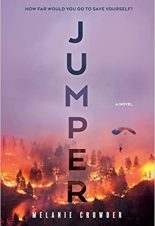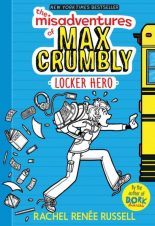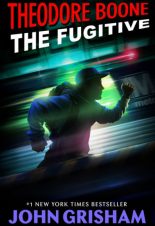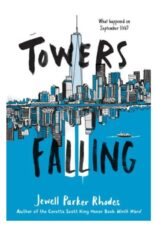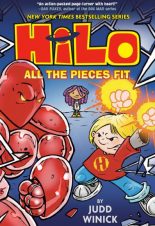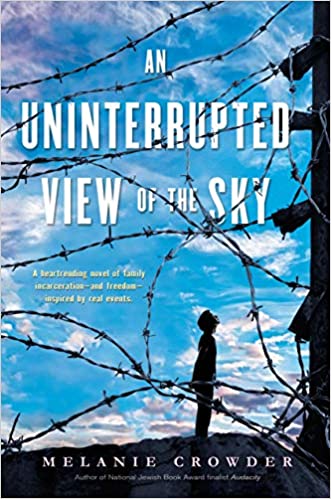
Buy This Book
Other books by Melanie Crowder
“No person can make you feel inferior in this world unless you let them,” Papá. –An Uninterrupted View of the Sky
An Uninterrupted View of the Sky
by Melanie Crowder
AR Test, Diverse Characters, Teaches About Culture
12+
Score
5.0
304
Seventeen-year-old Francisco lives a poor life – he shares a bedroom with his sister Pilar, and his Papá struggles to make ends meet as a taxi driver. Francisco’s Mamá constantly nags him to do better in school, which Francisco could care less about. However, Francisco’s old life suddenly seems like a luxury when his father is arrested under false drug charges. Papá is sent to San Sebastián, a prison unlike anything Francisco could have imagined. When Francisco, Pilar, and Mamá visit Papá in the prison for the first time, Francisco realizes just how harsh life can be. There are no guards in the prison, and nothing comes free. If you want a cell, you have to pay for it. Until then, you sleep on the concrete.
Then, when things can’t seem to get any worse, Mamá abandons Francisco and Pilar. Forced to leave their home behind, Francisco and Pilar move into prison with their father. While they can still go outside the prison to attend school, Francisco finds it impossible to study when his father is barely scraping by on the inside. As one of four women in the prison, Pilar lives in constant danger, and she’s only eight years old.
Yet, slowly, the small family begins to adapt. Papá is able to purchase a cell so that he and the kids can be safe at night. Meanwhile, Francisco’s relationship with Soledad, a girl from the prison, develops into a friendship, while tension grows between Francisco and his friend Reynaldo, who starts selling drugs. While joining Reynaldo is compelling, Francisco can’t take that risk, not with his sister needing his protection and his father needing a lawyer. However, the corruption in the judiciary system makes it near impossible for Papá’s case to be examined. It will take years to free him.
Francisco decides that he must graduate high school and make it into college so that he can help his father and sister. The story ends when Papá raises enough money to send Pilar and Francisco to his parents in the countryside. Though Francisco doesn’t want to break up their family, he knows life is safer for Pilar there. Due to his developing relationship with Soledad, Francisco takes her with them and leaves behind his hometown. The story ends with hope for reunification as Francisco is accepted into law school.
An Uninterrupted View of the Sky is written in the first-person point of view from Francisco’s perspective. At first, Francisco seems bitter and standoffish since he fights with his parents and doesn’t care to do well in school. But after everything is stripped away from him, Francisco begins to appreciate what he had and starts to focus on what is important to him: family and safety. He stops fighting, works hard at school, and protects his sister and father. One of the most powerful scenes in the story is on the day of Francisco’s final school exams. Due to a murder in the prison, no one is allowed in or out, which means that Francisco will miss the exam. Papá uses his only savings to bribe a guard to let Francisco go to school. Early on, due to pride, Francisco never would’ve allowed it, but Francisco knows that he will never get a chance to escape prison if he’s unable to graduate. This scene shows Francisco’s newfound maturity and selflessness.
The hardships Francisco, Pilar, Papá, and other characters inside and outside the prison face show the harsh reality of life in Boliva in the 1990s. This story is inspired by true events and exposes the effect of racial injustices supported by the Bolivian government. It touches on sexual assault, poverty, violence, and other dark themes, making the story appropriate for mature readers. While not everyone may be able to read An Uninterrupted View of the Sky due to its content, it is a powerful novel about perseverance despite dehumanizing circumstances. Readers will walk away from this story with sadness due to the family’s experiences, but also with hope like Francisco has—hope for a better future.
Sexual Content
- Soledad is sexually assaulted when leaving school. “Two guys. . . step out in front of her. . . one of them slides beside her and reaches a hand under her skirt.”
- Soledad says that “girls my age on the streets – sooner or later, they end up selling their bodies so they can eat.”
- When Francisco offers to let Soledad stay the night, she says, “You want me in your bed, Francisco?” He blushes.
- Francisco and Soledad kiss. “I take [Soledad’s] face in my hands and kiss her. Those black eyes flutter closed as she moves against me. Her lips are salt and wind and fire on mine. She presses the length of her along the length of me, and the stars start spinning above.”
Violence
- Francisco gets in a fight while playing soccer. Francisco is “two steps from the goal when an elbow cracks against my eyebrow. Blood slicks down my cheek and drips onto the dirt in front of me.” He is unable to fight further because a friend holds him back.
- Francisco sees someone getting threatened in the prison. “I almost run into two guys pinning another prisoner against the wall. One of them has a knife.” The book doesn’t describe what happens after this.
- Papá sees a fight. “[Papá] passed a cell with men crowded around the door. You know what was going on inside? Two boys were fighting each other. For entertainment. Like cocks in a pen, they were being paid to fight.”
- Pilar is found in a cell with an older man. Nothing happens to her because Francisco comes to rescue her, but the prisoners take over and punish the older man. “[The prisoners] push into the cell. . . The sound of fists on flesh follows me down the stairs as I hurry to catch up with Papá. They must have stuffed a sock in that guy’s mouth, because I don’t hear anything from him but these choked, drowning sounds.”
- When Francisco was young, he beat up two boys after they “cornered me before school and called me indio bruto. I didn’t know what it meant, but I saw the twist of their lips, their mocking eyes. So I rammed the bigger one in the stomach and knocked him to the ground, which gave the other one the chance to kick me over and over again from above.” A friend stopped the fight.
- Francisco is beat up. “Behind me, feet scuff against gravel. . . I get two quick jabs in the side. My eyes fly open, and my lungs seize. Whoever it is has a ring on. I shouldn’t have let my guard down. The guys go for my back and my ribs and my gut. They don’t say why. They don’t have to. I’m a prison kid now. I’m just trash to them. My ribs are on fire, and my stomach has caved in on itself. But a fight has been coiling inside me tighter and tighter all week, just waiting for a reason to bust out. . . It’s three on one, so anything goes. I am for the nose and the jaw and the crotch and the knees, and I’m kicking and punching and everything hurts. I’m slamming my fist into the meat of their faces and darting around like a bloodsucking mosquito so they can’t pin my arms behind me. Watching the spit fly and their eyes go wide is like blood and bone and breath and life. They pummel me, and I beat the shit out of them.”
- When a boy in the prison insults Papá, Francisco punches him. “The words are barely out of José’s mouth before my fist flies out and glances off his teeth.” José doesn’t fight back.
- Soledad attacks the men that sexually assault her. When a man “reaches a hand under her skirt. In that second, her whole being bristles. . . Instead of running down the street, she leaps at them and claws at their faces, aiming for the soft flesh of their eyes.”
- Papá gets beat up and Francisco comes to his aid. Francisco “can make out a circle of men in the courtyard. They’re all yelling and in the middle of it, two big guys are pummeling this smaller figure on the ground. . . I run down the stairs and push through the hall, and I hear the sound of their boots in his stomach and their punches landing on his face.” The men scatter before Francisco arrives.
- One of the kids in the prison gets hit by a pot of boiling water. “Suddenly there’s this crash outside, and then a loud, long wail. Down in the courtyard, a boy a little younger than Pilar is lying on the ground, screaming. His mother bends over him, her hands fluttering above the boy’s blistering skin.” He is removed from the courtyard and sent to the hospital.
- Reynaldo and Francisco fight after Francisco refuses to sell drugs. Francisco describes, “Reynaldo plants both hands on my chest and shoves. . . He comes at me again, and this time, he doesn’t shove, he punches. Three quick fists in the ribs. The breath coughs out of me, and my arms close over my stomach.” Francisco doesn’t hit him back, but instead leaves.
- Francisco finds out that Red Tito, a man in the prison that is regarded as dangerous, is dead. “Red Tito is dead. His body was found early that morning, gouges like claw marks carved into his chest, a pain of puncture wounds like bite marks in his neck.” Later, Francisco finds blood under Soledad’s nails, implying that she was the one who killed him.
Drugs and Alcohol
- Papá is arrested. “The police stopped [Papá] and arrested him, said that he was going to make cocaine with that gasoline.”
- Reynaldo and Francisco drink alcohol together. “Reynaldo dips into his father’s liquor stash, and for the rest of the afternoon, we take turns drinking straight from a bottle of cheap singani.”
- After finding a stash of drugs in his bedroom, Reynaldo’s mother kicks him out.
- Soledad admits her father does drugs. “Drugs messed with [my] Papá’s head. I don’t even know if he knows I’m there most of the time.”
Language
- Reynaldo says, “Forget those bastards.”
- On multiple occasions, Francisco uses the word “bastards” to refer to people he finds mean or difficult to work with, such as policemen and school bullies.
- Francisco says “dammit” and “shit” occasionally.
- “Indio” and “Indio bruto” are Spanish slurs that are directed at the mixed and/or indigenous population, including Francisco and Soledad. It is used a few times.
- One of the men who assaults Soledad calls her a “filthy bitch!”
- Francisco writes a poem where he calls the famous poet, Pablo Neruda, “that horny bastard.”
- Francisco refers to himself as a “cojudo.” It’s Bolivian slang for “asshole.”
Supernatural
- None
Spiritual Content
- Soledad says that she leaves the prison every weekend to go to the countryside and make an offering to Pachamama. She says, “I thought if the spirits knew how much I wanted a life out of the prison, they would help me find it.” Pachamama is an Andean goddess, similar to Mother Earth.
Other books by Melanie Crowder
“No person can make you feel inferior in this world unless you let them,” Papá. –An Uninterrupted View of the Sky
Latest Reviews

Pride: A Pride & Prejudice Remix
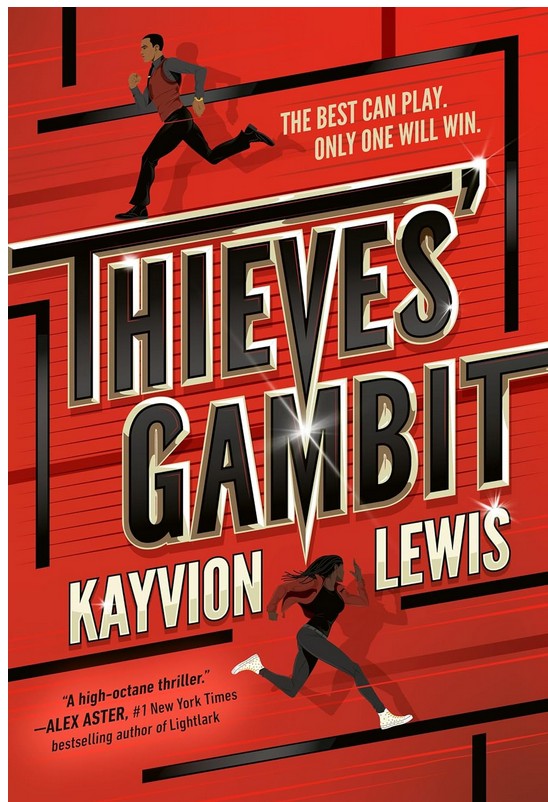
Thieves’ Gambit #1
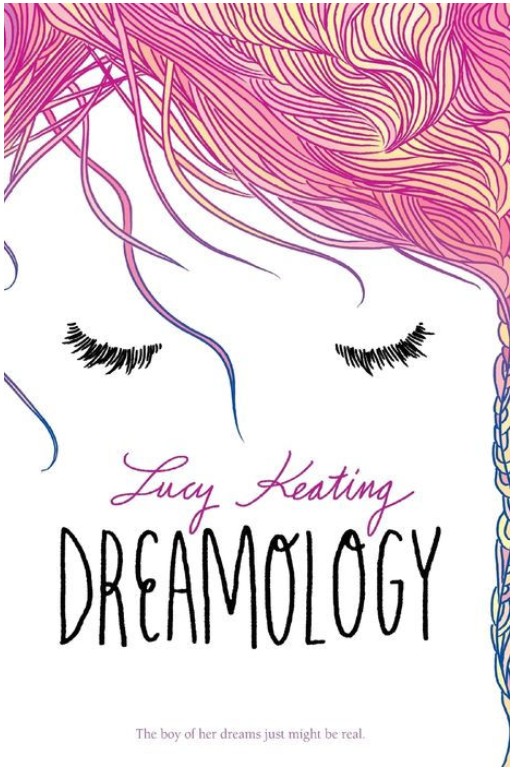
Dreamology
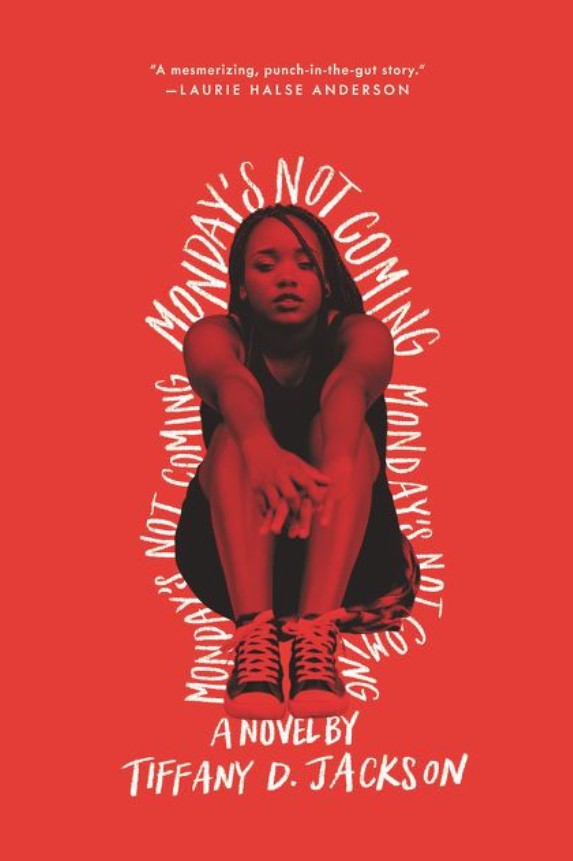
Monday’s Not Coming
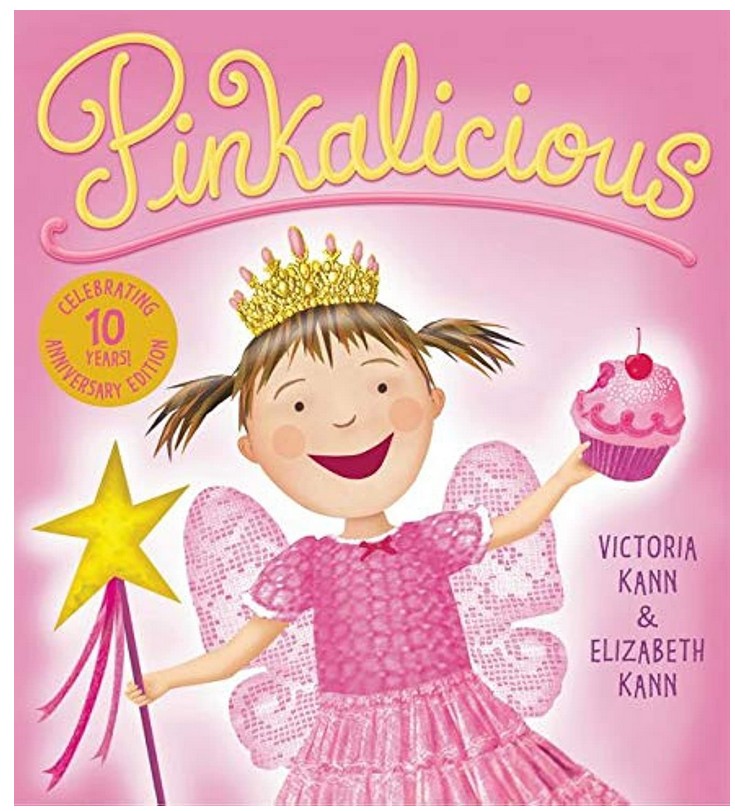
Pinkalicious

Driven

Goodbye Days

Blood of Troy

Will’s Race for Home

